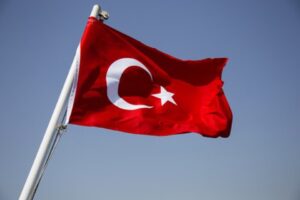Hungary will not be allowing any more NATO troops to enter Hungarian borders as part of the escalating conflict between Russia and the West over Ukraine, according to a report from Euronews.
Euronews, one of the EU’s top English news sites, interviewed Hungary’s Foreign Minister Péter Szijjártó, where the minister said that the Hungarian government has not agreed to take in large numbers of allied soldiers. He also said that the government believes that there were already more than enough NATO soldiers in Hungary to ensure their safety against Russia.
“No, we have not agreed to that and we will not agree because we have already NATO’s troops on the territory of the country, which is the Hungarian army and the Hungarian armed forces, [they] are in the proper shape to guarantee the security of the country. So we don’t need additional troops on the territory of Hungary,” said Szijjártó.
Among Szijjártó’s chief concerns is the East and West returning to a Cold War-like era of constant conflict putting the world under the ever-present threat of largescale war.
According to him, Central Europe, which includes Hungary, paid the biggest price during the Cold War, and he doesn’t want to allow his country to pay the price this time.
“That’s why we don’t want these times to come back. We ask, we urge the international community to do its best in order to avoid the Cold War to return, avoid even the psyche of the Cold War to return because we have learned it from history, unfortunately very, very clearly, that whenever there is an East-West conflict, the countries of Central Europe lose and we don’t want to be losers anymore,” Szijjártó said.
The chief solution to the escalating conflict is diplomacy and discussion to resolve problems instead of competing to see who can send the most troops to each other’s borders.
“We have to invest in diplomacy, we have to invest in dialogue,” Szijjártó said.
Finally, Szijjártó added that the actions taken by the EU, US, and UK have failed, the chief of these actions being economic sanctions.
“If you look at the sanctions themselves, it’s a failure. They don’t work out. They are unsuccessful,” Szijjártó said. He added, “Trade between Germany and the Russian Federation has increased since the sanctions have been in place.”
The sanctions have been renewed every 6 months since 2014 by the European Council, with the last renewal being in January 2022. The renewals also regularly add new individuals and entities to be sanctioned, however, this has not seemed to deter Russia’s aggression towards Ukraine or slow the ongoing war in Ukraine’s Donbas region.
Euronews is one of the leading European English-language news sites covering a borad range of topics, with access to high level actors such as Szijjártó.
To read more news about the EU and Schengen Area, click this link.













